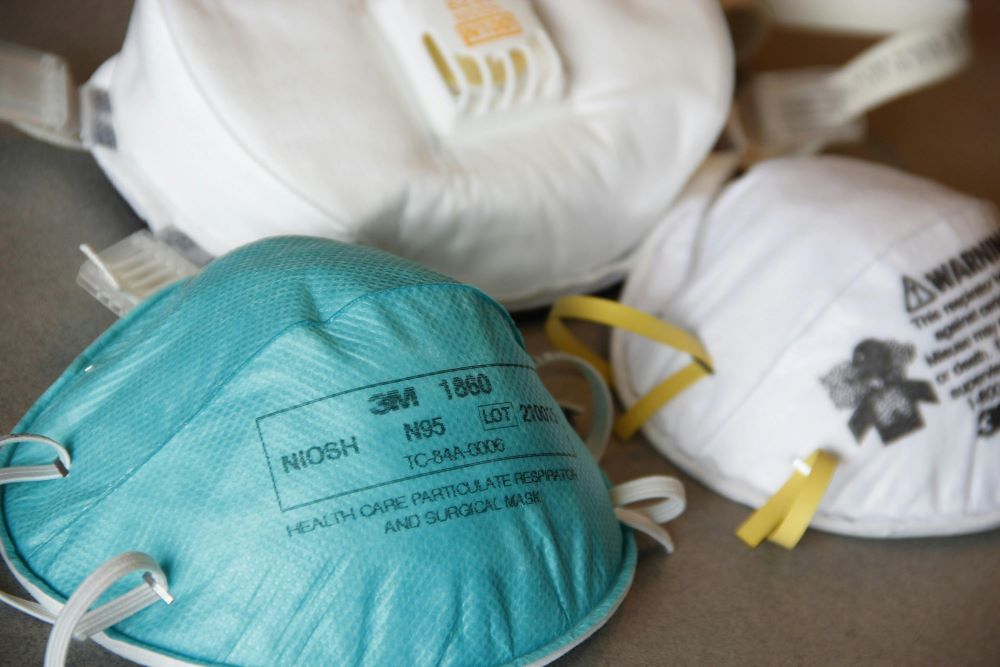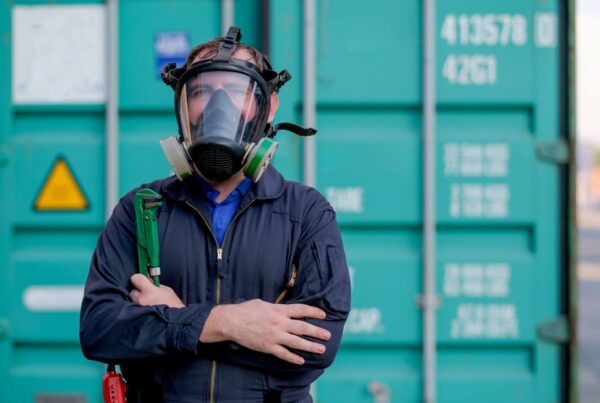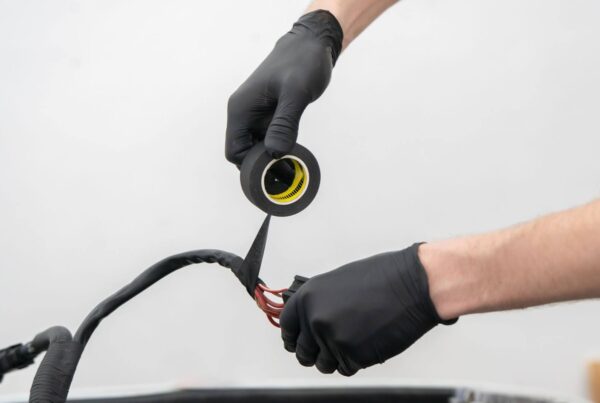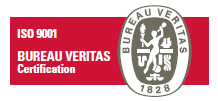
Fit testing ensures the respirator has an adequate seal to protect against airborne hazards in high-risk tasks and workplaces. So, regardless of the respirator, the wearer must undergo fit testing before it’s used in production.
One thing to note, though, is that the respirator fit test approach might vary depending on the type of PPE you provide your workers at work. This article highlights N95 masks and how fit checking can help provide optimal protection.
What is N95 Fit Testing?
N95 is a highly effective filtering facepiece respirator (FFR) that meets the National Institute for Occupational Health & Safety (NIOSH) standards for air filtration.
The N95 mask can filter at least 95% of small airborne particles in non-oily environments, making it a crucial piece of PPE in chemical plants, medical facilities, and pharmaceutical industries.
The purpose of fit testing is to identify whether the respirator or mask fits the face of the wearers to keep it airtight and prevent harmful particles from bypassing.
In the context of N95 respirators, this stage is also where you’ll determine the specific models and sizes that will fit each individual.
How Does Fit Testing Work?
Two common types of fit testing are qualitative fit test (QFT) and quantitative fit test (QNFT). QFT offers a subjective result as it relies on the test subject’s sensory reaction to the testing agent. Meanwhile, QNFT is the more technical, objective approach, measuring the particle’s concentration within and outside the respirator.
Choosing between the two will depend highly on your needs and capacity; QFT is much cheaper, but QNFT provides more accuracy.
So, how does this work?
During a fit test, the wearer will be asked to perform routine movements, primarily actions related to the job, to assess whether the fit holds. Other methods may include wearing a hood over the head and spraying testing agents to see if there’s a reaction.
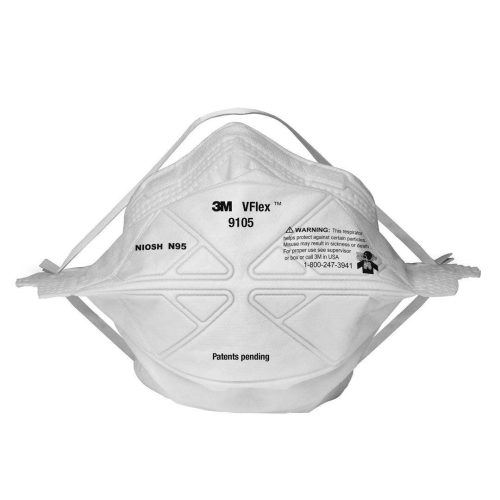
Why is Fit Testing Important for N95 Masks?
Ensuring a Proper Seal for Maximum Protection
Proper fitting is crucial for the effectiveness of N95 masks. Without a good seal, harmful contaminants can leak in, defeating the mask’s purpose. Fit testing, however, solves this challenge as it can help determine potential gaps before the wearers use the mask in production.
Meeting Workplace Safety Standards
Fit testing is more than your responsibility to your workers to provide safe, high-quality respirators; it is a requirement and a mandate by industry regulators like OSHA. This means you must comply with these safety standards to avoid legal complications and maintain safe working spaces.
Identifying Common Fit Issues
Besides gaps, fit testing can also identify common fit problems, such as discomfort and difficulty breathing when a mask is used. This helps you address issues head-on and provide optimal and functional masks for your workers.
When and How Often to Conduct Fit Testing
Fit testing should be conducted yearly, ideally once a year, to ensure that the mask’s fit is up to date and the wearer remains protected. However, when the user’s weight or facial features change, or new respirator models are introduced, you must conduct a fit test immediately or before using them at work.
Achieving Optimal Protection with N95 Respirators
Effectiveness of N95 Respirators
Unlike cloth or surgical masks, N95 respirators are crafted to close the seal around the face and filter out 95% of harmful airborne particles. This makes this specific mask a better, robust choice for protection in industrial and medical environments.
Conditions for Optimal Protection
N95 masks require a specific condition for them to offer optimal protection. Here are some of them:
- It must fit the user’s face closely and securely.
- You must orient wearers of the proper donning and doffing to avoid contamination.
- Fit testing is required to ensure that the appropriate model and size are chosen for each user.
Prioritising Workplace Safety with Fit Testing
Fit testing is indeed a crucial step in protecting employees from airborne hazards in the workplace. This is especially true for N95 masks, where proper fit is vital for effectiveness. Some may even say this mask is only as good as its fit.
So, prioritise workplace safety through fit testing and partner with trusted safety equipment and PPE suppliers like Lim Kim Hai Electric.
We are accredited by 3M Singapore with qualified test trainers to assist you. As a leading 3M authorised distributor in Singapore, we offer safety solutions and fit testing services, including QFT and QNFT, to cater to your business’s working environment needs.

